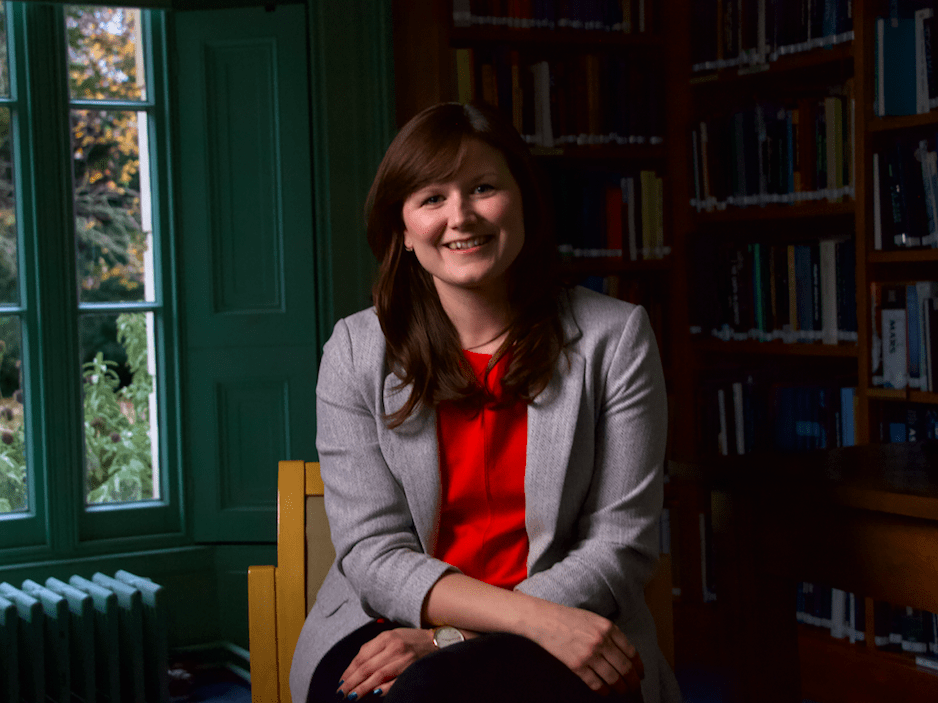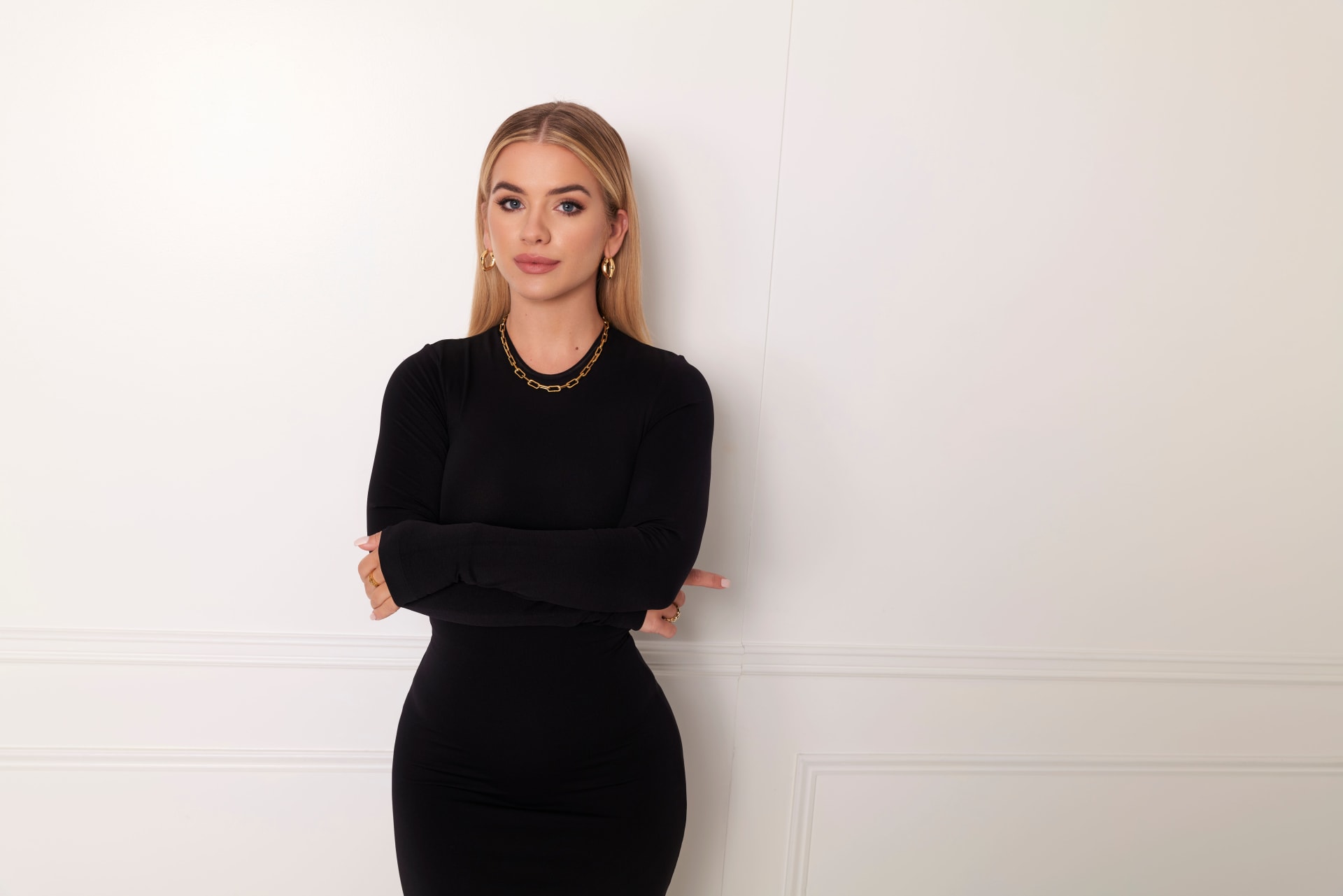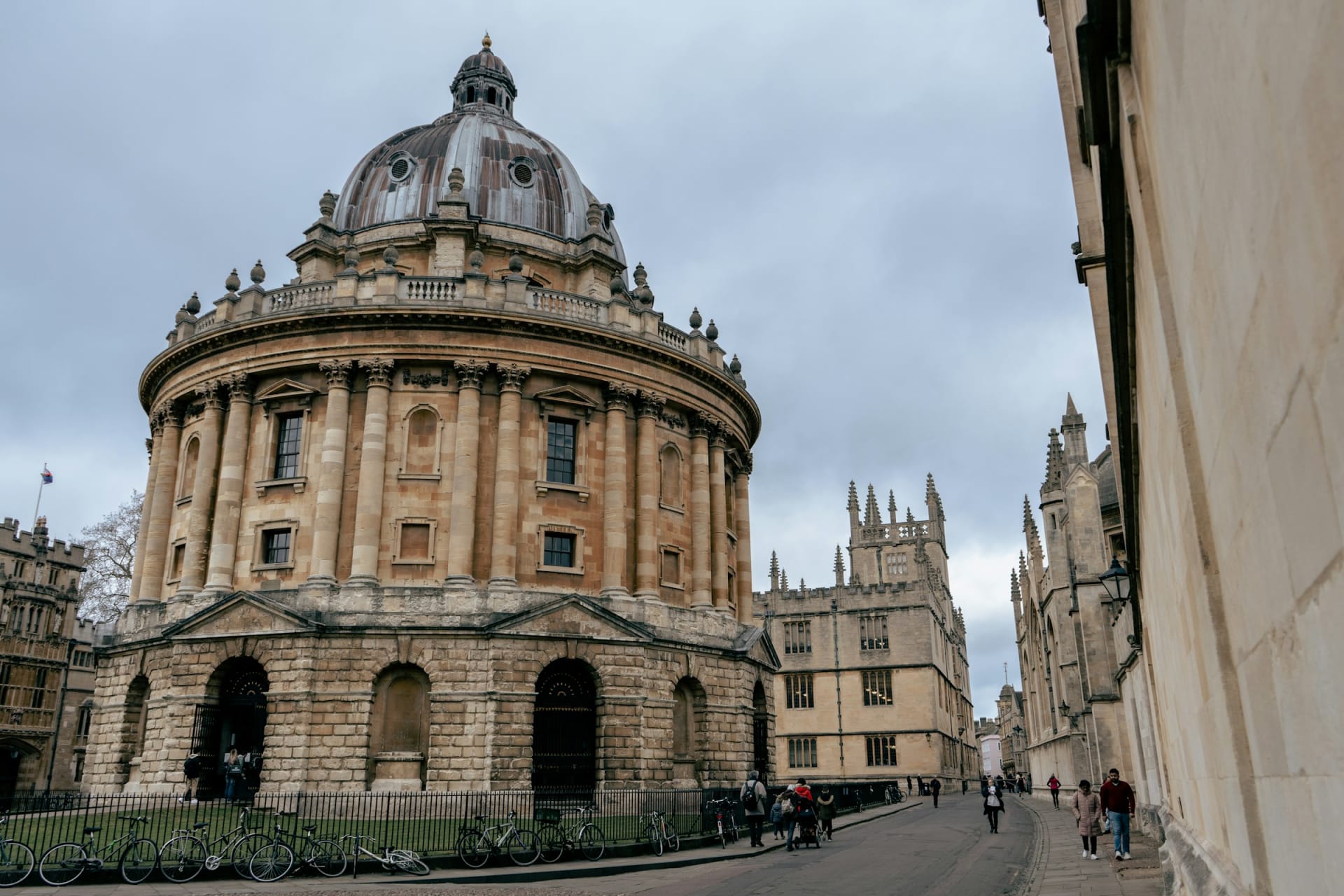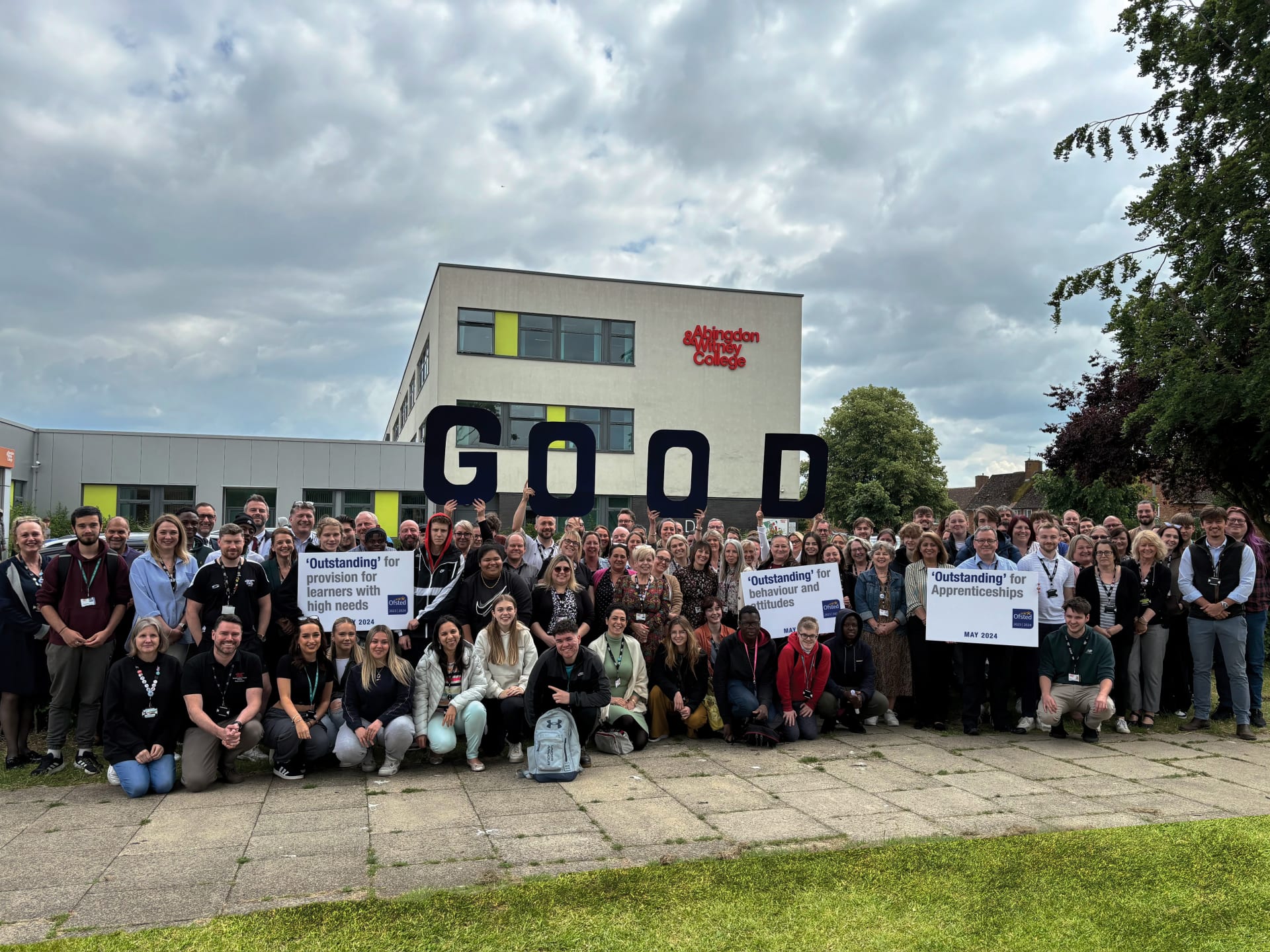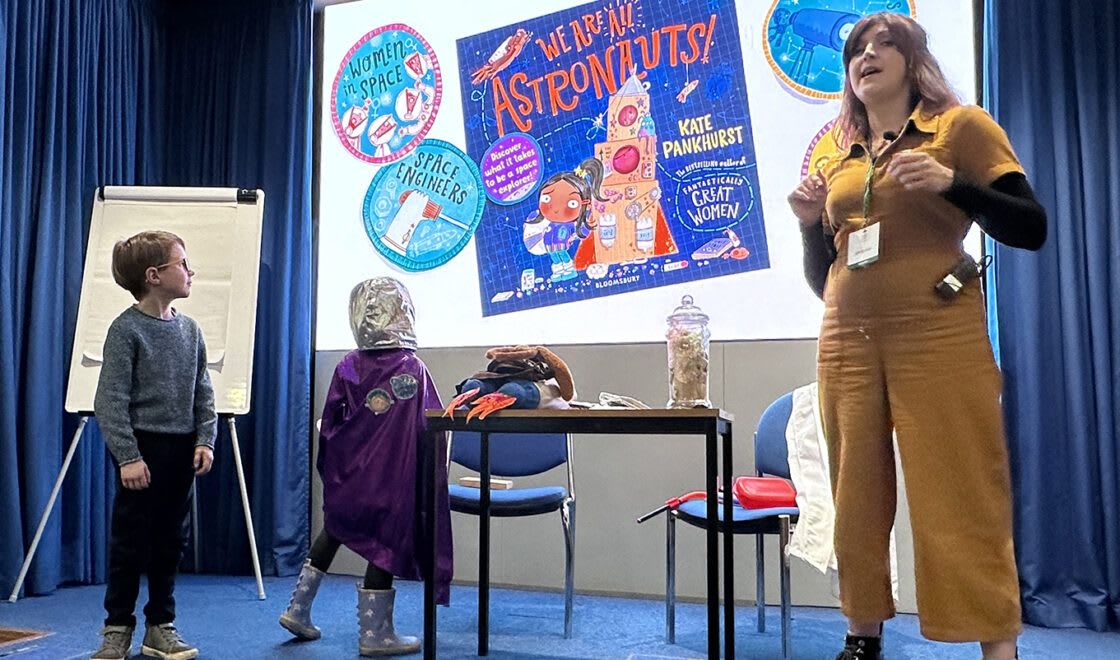To describe astrophysicist Dr Becky Smethurst as a rising star might be a pun, but it’s also true. Her most recent award (from the Royal Astronomical Society) recognises her ground-breaking research, and she has also been both awarded and applauded for her contribution to public engagement in Physics. All of which are proudly listed on her website, dating back– we’re tickled to see – to the awards Becky received during her school days in Bolton.
“Ahh, yes, I’m still buzzing from the announcement of the Royal Astronomical Society’s Winton Prize for 2022 for my research, and the school awards were just as important to me back then.”
Can you explain what your research is on?
So, my research is based on Super Massive Black Holes and how they grow. We think there’s one at the centre of every galaxy, every ‘city of stars’. For example, the Sun is one star in the Milky Way galaxy which has its own super massive black hole. Because space is big, it’s difficult to get material down close enough to a black hole in order to grow it. We used to think black holes grew when galaxies merged together, but I look at the black holes in galaxies which have never merged and find they’re just as big! I’m trying to work out how they have gotten so big and what processes are happening to fuel this growth.
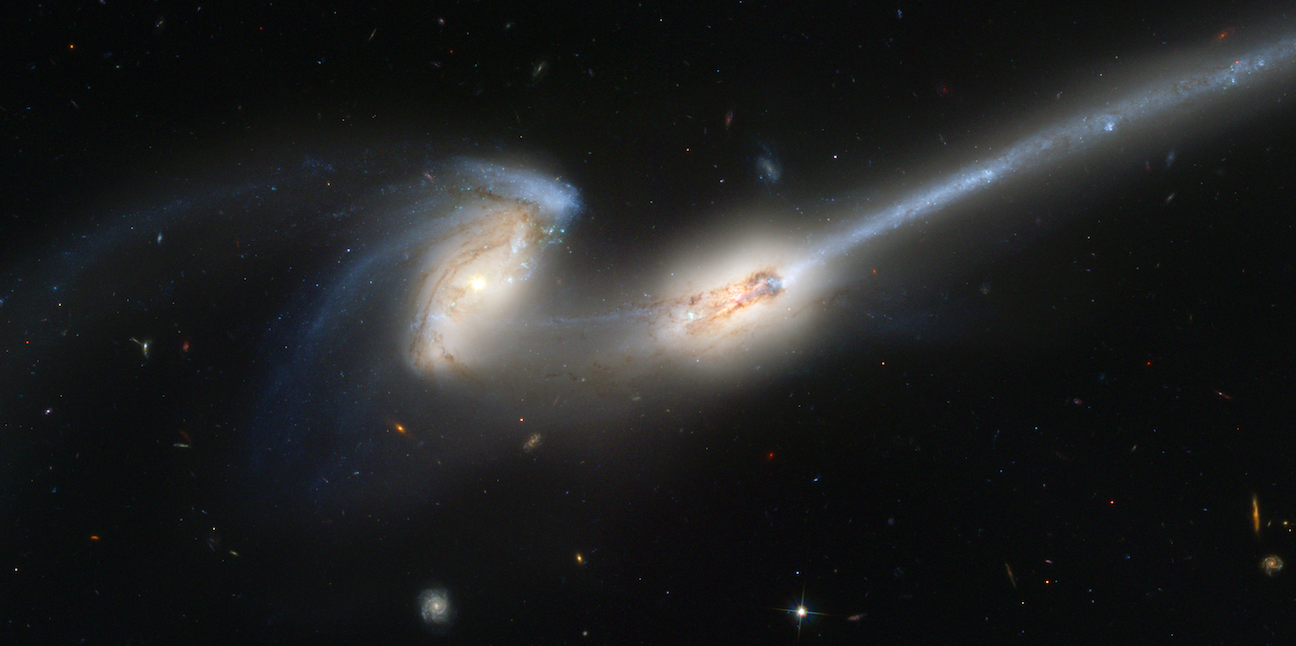
What impact does your studies have, outside of the scientific community?
For me, I think every single human is naturally curious, and that extends to the universe. Black holes hold a special place in peoples heart, and we’ll never know all that can be known about them. I can see why people think there is no direct impact but look at the benefits of astronomy over, say, the past 50 years. Digital cameras were invented by astronomers and so digital detectors were invented. Wifi is used as it is thanks to astronomy (Wifi signals bounce off walls and floors and by the time they make it to your pc or phone they’re very weak. It’s research developed for astronomy which has allowed us to manage them for use. It has also developed image analysis – astronomy is a science of images. So, when you go for an MRI or CT scan at the hospital, the programmes they use to analyse those images were developed by astronomers for taking pictures of the sky. Astronomy drives forward different areas of science which eventually filters down into society.
Your social media stats are incredible – 379k subscribers to your YouTube channel and your featured video has over 2,000,000 views. Your content feels incredibly fresh, and I see you follow certain trends.
I’m trying to trick the algorithms. Social media algorithms say, ‘this is content we think you’d like’ and it’s based on your age, your location, and your gender. They look at what others have watched and say ‘we think you’ll like this’. Now, the top 20 STEM YouTube channels are fronted by men, and studies show that male-led is more likely to be watched by men.
I realised young girls especially are being excluded by their age and location so it’s not that I don’t want to men to watch, but I don’t want the girls excluded. I’m trying to break the algorithm, and then hit you with the science. It worries me how many young girls are never going to be presented with load of science and people should be aware of this. If there was a more diverse workforce working on constructing the algorithms it might be different. It was even brought to my attention during the BLM protests in 2020, that this even affects book recommendations on your Kindle. If you’ve only ever read books by white authors, the algorithm will continue to recommend you books by white authors, and you will be excluded from recommendations by other authors, which then disproportionately affects those authors. We have to be careful, these algorithms might mean well, but they can really narrow your bubble.
How did you become interested in astrophysics?
I was given a book on space with a load of facts when I was eight years old, and I was obsessed. I wanted a telescope, but I just didn’t realise it was something I could do as a career until end of high school. I was at a girls school which I think helped me to grow up without the expectation of what girls could and couldn’t do. I wouldn’t be doing astrophysics if I hadn’t fallen in love with the sky, but it’s all the more wonderful to know what I’m looking at. It gets more beautiful; it doesn’t take the magic out.
Was your school supportive?
I was never discouraged but I didn’t necessarily feel encouraged toward science. I was told by the Careers Advisor to consider becoming an accountant but that’s because the knowledge wasn’t there in school. Luckily, I’m bull-headed and stubborn and I was sure of what I wanted.
I’m aware that people need role models, and to see people they identify with. I feel that’s what I’m trying to do on YouTube. [As a woman] I’ve never felt not welcome. I think astronomy is one of the sciences with a higher proportion of women in the field, and we’re all really supportive of each other.
I do think there’s big problem, though, in society in general. There was a study by the Institute of Physics on at what age you need to go into school to intervene to encourage girls into STEM. They had thought it was year 9 but that’s already too late; seven years old is the point that kids learn what is a girls toy and a what is for boys and that’s from friends teachers, and parents. It’s not just an issue in physics, there’s an imbalance across all subjects. if you want more girls to do physics then more boys have to do Nursing or English. And, if you’re going to have gender quality in STEM it needs to be addressed across all elements of scientific research. When the first woman went into space NASA actually asked if 100 tampons would be enough for seven days in space. These were smartest minds of the time, but they didn’t have a clue about how many tampons a woman uses during a week of her period.
Watching Dr Becky on YouTube and talking to you now, you come across as so engaging, it’s quite exceptional. Your communication skills are such an asset.
I think it comes from loving what I do, but I still question ‘am I going to be good enough to carry on with the things that I love’?’ or ‘is the communication a detriment to my research?’ So many thoughts run through my head. I just keep doing what I love and hope the future will work itself out.
[I mention her pinned video, A Life in the Day of, in which she is seen talking with Heino Falcke, the German Dutch Professor whose work brought us that memorable image of the black hole.]
I was just so excited to get to talk to him about my work. He is head of a massive collaboration and having the opportunity to speak to him was so exciting! And you have to make the most of it. It’s the excitement that bubbles up and gives you the confidence, and it is also part of my job. The view of academia is very much ivory towers, locked doors, and lofty professors, but professors are usually so happy to speak with young researchers. They want to talk science, so part of being a PhD student or a Post Doc [post-doctoral fellow] is getting used to those conversions. That’s where you’re going to get good ideas. If you love what you do it will shine through and if you say something stupid you have to learn to laugh it off and get used to talking to more senior people; it’s one of the perks of the job, to be honest.
I remember, at the end of 2020 Professor Robert Penrose had just won the actual Nobel Prize for Physics - that level of person: Nobel Prize winner, worked with Stephen Hawking – and Radio 4 were interviewing him but wanted someone in the same field but as an Early Career Researcher to talk with him. I found myself talking to him, thinking to myself ‘don’t say something stupid, Becky – a) you’re on Radio 4 and b) you’re talking to one of the most eminent physicists, mathematicians, that has ever been in your lifetime.’ Half of me was worried I was talking too much, I was too excited, too bubbly but inside I was terrified, but at the end of the interview he said, that was so enjoyable, Becky. We should grab coffee once this pandemic’s over.
How did lockdown impact on the travel necessary for research?
So, straight off the bat the University closed, and everyone started working from home. When it eased a little, people who were actually doing experiments, who worked in laboratories, could go in. Astronomers can work at any desk as long as we have data, whether that’s simulation or in my case data from telescopes. There was actually a huge backlog of data from survey telescopes which scan the sky night after night, taking images to build up a big map. So, we had some data, but telescopes weren’t allowed to operate. Now, say you see something interesting and need the data in a different form you have to apply to another telescope to do that. But they were shut down as the people who manage them on a daily basis wanted to lockdown with their families and the telescopes can be in far flung places. The backlog meant we could do new science, but new observations were held back.
So, there was a silence?
Not quite a silence as people still had things they could get on with, but if you go back to the archive, there will be a blank.
Talking of pictures of the sky – what’s with going on with the moon? Every month it’s called something else – red, pink, wolf, harvest…
She laughs, “It’s not an astronomical term, they’re from the American Farmers’ Almanac. Astronomers don’t ever use these terms or refer to supermoons. We would say perigee, which is when the moon is at closest point to earth. It is in theory it’s bigger but that’s imperceptible for the human eye except for when it’s very low down and its next to a tree or a house and you can think ‘oh wow, it looks so big’. I think, especially with lunar eclipses, when the moon goes a little orange when it passes through the sun’s shadow. I think people like the connection and that’s why it gets picked up on. Last year in April the pink moon was all over Instagram and people were putting up pictures of the moon which had been put through a pink filter, but that massively contributes to science misinformation online. It gives people a false expectation. It’s frustrating to see that, with all the best intentions, those names were brought in to make people excited about what’s going above them, but at the same time it can be detrimental.”
Whilst I’m on the daft questions…I’ve heard you talking about Sagittarius A*, right. And, in Oxford’s Museum of the History of Science certain exhibits use astrological terms. Is there a link?
Sagittarius A* is the black hole at the centre of the Milky Way, which happens to be found in the same direction as the constellation of Sagittarius, hence its name. It has nothing to do with astrology or star signs though. Sure, astronomy has its foundations in astrology, but astronomy is the observation of the sky, astrology is the assumption that the movement of things in the sky affects us on earth. There is no scientific basis, but there is some history. Centuries ago, importance would be placed on observations of the sky and eventually these were used to for science rather than to be interpreted in the way astrology does. While we’re talking about the signs of the zodiac, there are actually 13 constellations. Ophiochus (the thirteenth) was left out for convenience sake. Earth’s pull is like a spinning top; very slow and every 10,0000s of years the constellations change and drift which means you’re probably not even the sign you think you are.
Final stupid question, you work a lot with computers. The developments in Artificial Intelligence (AI) are pretty scary. Does this worry you?
It’s not something I lose sleep about. There’s a very big difference between AI and machine learning, where computers are taught to look for things or group things together in a certain way. I think that’s something that’s commonly misunderstand, we’re not trying to make something which would be classified as AI: they are two very different things. With AI you’re not only telling a machine to look for things, but you’re asking it to decide what to look for.
Physically, there is just too much stuff for us to look for and so we need computers, and they need training. There are various different things going on which are exciting and changing how we do science.
